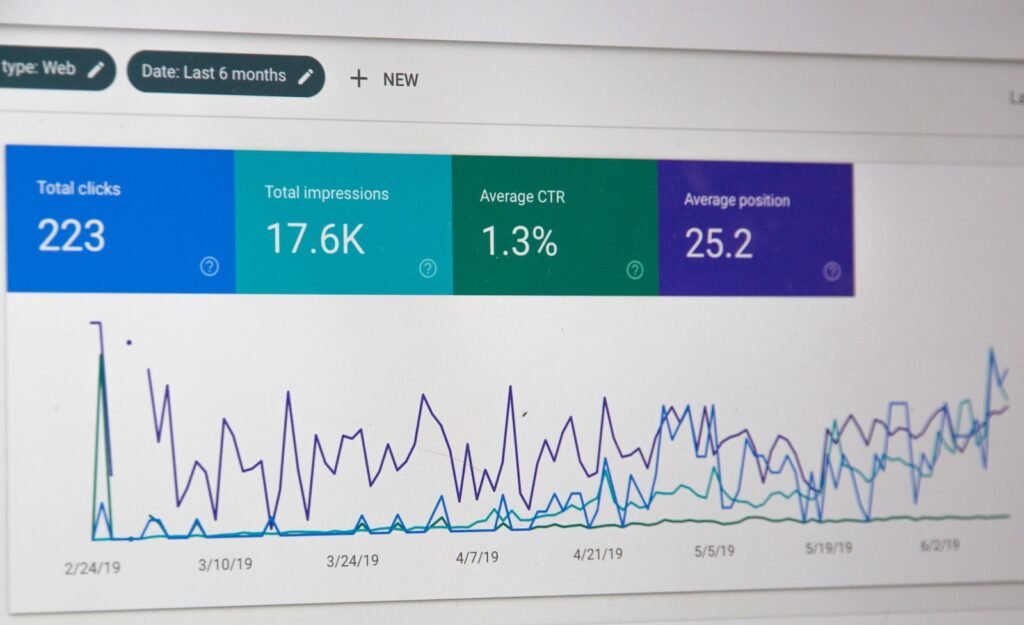Mastering SEO Techniques for Effective Online Optimization
Search Engine Optimization (SEO) is a crucial aspect of online business and digital marketing strategies. With the ever-increasing competition in the online landscape, it is essential for businesses to master SEO techniques to stay ahead. Effective SEO drives organic traffic to websites, improves visibility in search engine result pages (SERPs), and ultimately boosts conversions and revenue.

Understanding the Importance of SEO in Online Business
In today’s digital age, having a strong online presence is imperative for businesses of all sizes. SEO plays a pivotal role in enhancing online visibility and maximizing the potential to reach a broader target audience. By optimizing websites for search engines, businesses can attract organic traffic and improve their chances of converting visitors into customers. In essence, SEO is the foundation of a successful digital marketing strategy.
The Fundamentals of SEO: Key Concepts and Terms
To master SEO techniques, it is essential to have a solid understanding of the key concepts and terms associated with it. Some fundamental concepts include keywords, meta tags, backlinks, and search engine algorithms. Keywords are the words or phrases that users enter into search engines when looking for information. Meta tags provide a brief description of a webpage’s content, and backlinks are links from other websites that direct users to a particular webpage. Search engine algorithms determine the relevance and ranking of webpages in SERPs.
- Conducting Effective Keyword Research for SEO
Keyword research is a crucial aspect of SEO as it helps businesses identify the right keywords to target. Effective keyword research involves understanding the target audience, analyzing search volumes, and identifying relevant and low-competition keywords. Tools like Google Keyword Planner, SEMrush, and Moz Keyword Explorer can aid in finding valuable keywords that align with the business’s goals and target audience.
On-Page Optimization: Enhancing Website Content and Structure
On-page optimization focuses on optimizing individual web pages to improve their visibility in search engine results. This involves optimizing meta tags, headings, URLs, and content. By incorporating relevant keywords strategically and ensuring proper formatting and structure, businesses can enhance the visibility and relevance of their webpages, making them more appealing to both search engines and users.
Off-Page Optimization: Building a Strong Backlink Profile
Off-page optimization revolves around building a strong backlink profile for a website. Backlinks from authoritative and relevant websites are like votes of confidence, indicating to search engines that the website is trustworthy and valuable. By implementing effective link-building strategies such as guest blogging, influencer outreach, and content promotion, businesses can improve their website’s authority and search engine rankings.
Technical SEO: Optimizing Website Performance and Accessibility
Technical SEO focuses on optimizing the technical aspects of a website to ensure better performance and accessibility. This includes improving website speed, mobile-friendliness, site architecture, and ensuring proper indexing by search engines. By addressing technical issues and implementing best practices, businesses can enhance the user experience, increase website visibility, and improve search engine rankings.
The Role of Social Media in SEO: Strategies for Success
Social media has become an integral part of SEO strategies. Social signals, such as likes, shares, and comments on social media platforms, can influence search engine rankings. To leverage social media for SEO success, businesses should create engaging and shareable content, optimize social media profiles, and actively engage with their audience. By integrating social media and SEO efforts, businesses can amplify their online presence and improve organic visibility.
Mobile Optimization: Ensuring Compatibility and User Experience
Mobile optimization has become crucial as the majority of online searches now occur on mobile devices. To cater to mobile users effectively, businesses must ensure their website is mobile-friendly, loads quickly, and provides a seamless user experience across different devices. Mobile optimization not only improves user experience but also positively impacts search engine rankings, as search engines prioritize mobile-friendly websites in their results pages.
Local SEO: Targeting Geographical Audiences Effectively
For businesses targeting local audiences, local SEO is of utmost importance. Local SEO strategies aim to increase a business’s visibility in local search results, making it easier for potential customers in a specific area to find them. This involves optimizing Google My Business profiles, obtaining online reviews, and generating location-specific content. By implementing effective local SEO techniques, businesses can attract more local customers and drive foot traffic to their physical stores.
Tracking and Analyzing SEO Performance: Tools and Metrics
To gauge the effectiveness of SEO strategies, businesses need to track and analyze their SEO performance. Tools like Google Analytics, Ahrefs, and Moz provide valuable insights into key metrics such as organic traffic, keyword rankings, backlink profiles, and user behavior. By regularly monitoring these metrics, businesses can identify areas for improvement and make data-driven decisions to optimize their SEO efforts.
SEO Trends to Watch Out for in the Digital Landscape
The digital landscape is continuously evolving, and SEO trends play a significant role in shaping online optimization strategies. Some prominent SEO trends to watch out for include voice search optimization, video SEO, featured snippets, and the rise of artificial intelligence in search algorithms. By staying updated with these trends and adapting SEO strategies accordingly, businesses can stay ahead of the competition and maintain a strong online presence.
Mastering SEO Techniques for Effective Online Optimization
Mastering SEO techniques is crucial for businesses to thrive in the online landscape. By understanding the importance of SEO, mastering key concepts, conducting effective keyword research, optimizing on-page and off-page elements, addressing technical issues, leveraging social media, ensuring mobile compatibility, targeting local audiences, tracking performance, and staying updated with SEO trends, businesses can maximize their online visibility, attract organic traffic, and achieve long-term success. Embracing SEO as an integral part of digital marketing strategies is the key to effective online optimization.
